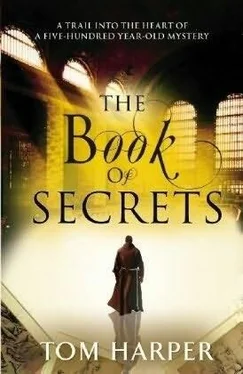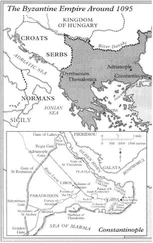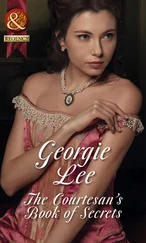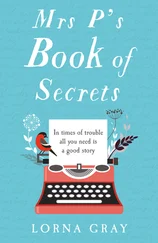‘Where are you going?’
‘To the Métro station.’
The cold hit him the moment he stepped out of the hotel. A raft of bruising clouds hung low over Paris, and there was a bite in the air that promised snow. He hurried around the corner to the Saint-Michel station. Across the Seine, a flock of birds wheeled around the towers of Notre-Dame. He bought a ticket, pushed through the narrow turnstiles and down a flight of stairs to the crowded platform.
He switched on the phone. Searching, said the screen. When he was satisfied there was no reception, he went to work.
He started by scrolling through her phone book. A few of the names sounded familiar in a second-hand way; some were French, others looked American. Nothing leaped out. ‘Museum, Natalie Cell, Paul Home…’
No ‘Nick’. His stomach tightened. She deleted me. After everything else it was a petty disappointment, but it hurt like a bullet to the gut. Perhaps more because it was so banal: not a gesture or a message, just a piece of housekeeping.
Maybe she wanted to protect me, he tried. But he couldn’t convince himself.
So why did she send me the card?
A red double-decker train pulled into the station. For half a minute everything was chaos as one group of shoppers and sightseers exchanged places with another. The train lumbered away.
He rummaged through the folders to check her text messages. They were empty – every message deleted. Except one.
I don’t know what I’ve done but please please call me. Even if you don’t want to talk, just call once. I still love you. Nick
The time stamp said six months ago. She’d never replied. Why had she kept it, leaving it to gather digital dust in this forgotten corner?
Nick closed the message. The platform was beginning to fill up again. At the far end, a dreadlocked guitar player was singing Pink Floyd in French. Without much hope, Nick went to the phone’s call log.
There were three calls. Two of them to numbers that looked French and weren’t in her phonebook, the third – and most recent – to someone called Simon. Nick clicked to view the number. That looked local too.
He scribbled down the three numbers with the time and duration of the calls, then switched off the phone.
He spent fifteen minutes in an Internet café, then went back to the hotel room. Emily was sitting on the bed examining the playing card again, her feet tucked under her like a schoolgirl.
‘Did you find anything?’ said Nick.
She shook her head. ‘You?’
‘Three numbers.’ He pulled the scrap of paper out of his pocket. ‘The last three calls Gillian made from her cellphone.’
‘If it was hers,’ Emily cautioned. ‘You don’t know that.’
‘It was hers.’ Nick slumped into an armchair. His hands were still stiff from the cold outside. ‘One of them was to a taxi firm. I’ve got the time and date of the call, so we could see if they have any records. Then there was one to a guy listed as Simon.’
‘Does he have a surname?’
‘Not even an initial.’ What did that imply? He’d never heard Gillian talk about any friends called Simon. He pushed the thought out of his mind.
‘But the third one I had more luck with. His name’s Professor Jean-Baptiste Vandevelde. He’s a particle physicist at the Institut Georges Sagnac, just outside Paris. He specialises in X-ray fluoroscopy, whatever that is.’
Emily raised an eyebrow. ‘Her phone told you all that?’
‘He’s got a website.’ Nick handed her the printout he’d taken from the Internet café. ‘All his contact details. When I searched for the phone number, it came up.’
Emily squinted at it. ‘Why would Gillian want to talk to a particle physicist?’
‘Let’s ask him.’
Strassburg, 1434
What can I say about Kaspar Drach? He was the most obscenely talented man I ever met – more so, I believe, than Nicholas Cusanus. While Cusanus tended his thoughts in walled gardens, Drach roamed freely across the earth; where Cusanus pruned, watered, shaped and cropped, Drach sprayed his seed without thought for where it would land. Tangled meadows of bright and fantastical flowers sprouted wherever he walked. Though among their twisted stems, serpents lurked.
None of which I knew that spring evening. I remember his bare feet slapping on the rungs as he descended the ladder. The crooked grin as he saw my surprise. I had expected someone like the goldsmith, wise and venerable, a man who had given his life to attain his new art. Instead, I saw a slight young man with a mop of unruly black curls, younger than me by several years. His skin was the colour of raw honey, his eyes like viscous oil – blue, green, grey or black by the changing whim of the light. A barbarian streak of blue paint creased his forehead.
He plucked the card from my hand and glanced at it. I looked for a sign of recognition, perhaps a glow of paternal pride that his prodigal child had been brought back to him. There was nothing. He handed it back to me.
‘Did you lose?’
‘What?’ I had not been paying attention. His fingers had brushed mine as we exchanged the card. In that moment, I had felt the demon who inhabited me stir, a gust that brings a taste of the storm.
‘The game. Did you lose it?’
I thought of Jacques’ pulverised face, his blood on the stones. ‘No.’
Drach gave me his crooked smile. ‘A bad workman blames his tools. A bad gambler blames the man who made the cards.’
He suddenly turned his back on me and began walking towards the river. I could not tell if it was a dismissal or an invitation. I followed. He squatted on the bank and sluiced water over his palette. Threads of colour streamed off it into the river.
I stood at the top of the embankment and watched. ‘How did you make them?’ I shouted down. My voice seemed unnaturally loud in the evening stillness. ‘How do you make them so perfect?’
He didn’t look round. ‘What is your trade?’
I hesitated. ‘I used to be a goldsmith,’ was the best I could say. ‘And if I came into your shop and asked for the secret of enamelling, or the way to fire gold with copper to bring the engravings to life, would you tell me?’
‘I-’
‘I discovered something which no man ever did before. Do you think I would share that with every stranger who passed me at a crossroads?’ He pulled the wooden palette out of the river, shook the water off and tucked it under his arm. He marched up the riverbank, straight past me.
‘I want to make something perfect,’ I said, and something in my voice – desperation or desolation – must have rung true. Drach turned back.
‘Only God is perfect.’
Written down now it looks a pompous rebuke. But writing cannot capture the way he said it: the overblown solemnity undercut by a twitch at the corner of his mouth, the mischievous cast in his eyes as they met mine in complicity.
‘God – and your playing cards,’ I said.
This answer pleased him very much. He spread his arms and took a bow. Everything was theatre to Drach.
‘Even God could not make two men so exactly alike as my cards.’ He considered this thought while I tried not to show my shock. ‘Except twins. And they are unnatural.’
He looked at the sky. The sun had disappeared; the heavens were darkening to black.
‘Are you hungry?’
We crossed the fields to the village. The path was narrow and broken by the plough; often we collided. I longed to take his hand and walk arm in arm, for I was already besotted, but of course I did not dare. I contented myself with the brush of his sleeve, the occasional bump of his shoulder.
He kept his paint jars in a sack, which tinkled like harness bells wherever he walked. His conversation was the same: flowing chatter that pleased my ear and never grated. He asked my name and where I came from; when I told him Paris, he fixed me with a look that made me think he knew everything.
Читать дальше












